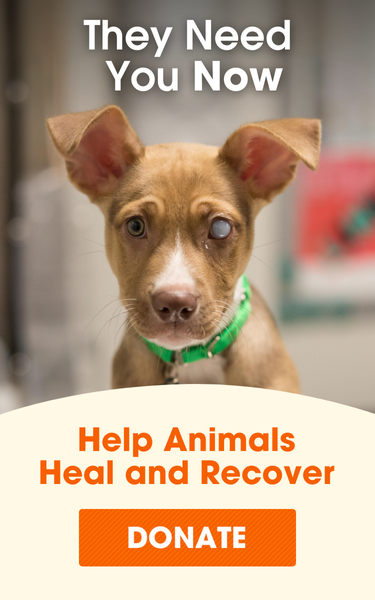
Is Your Pet in Danger of Contracting Leptospirosis?

This page contains links that lead to aspca.org/chewy. If you purchase any items through the affiliate links on that page, the ASPCA may receive a commission of 8% of your purchase at no additional cost to you. Thank you for your support!
With spring just weeks away, we wanted to take some time to refresh your memory on the dangers and diseases that can sneak up on pet parents during the warmer months, like leptospirosis.
What Is Leptospirosis?
Leptospirosis is a disease that is seen more frequently during the summer and fall and in warmer areas with high annual rainfall. It is most common in dogs, but more specifically in dogs who roam in rural areas or have exposure to livestock, wildlife, rodents and other dogs that have these risk factors.
Leptospirosis has multiple strains and therefore can be picked up in quite a few ways. Pets can be exposed by ingesting it after drinking from lakes, streams and rivers. Most commonly, dogs can get leptospirosis if an open wound comes in contact with infected urine, contaminated bedding, soil, water or food. It can also be transferred to your dog if they are bitten by another infected animal, such as a rodent.
What makes this disease so dangerous is that once the bacteria circulates into the bloodstream, it can reproduce in the liver, lungs, kidneys and central nervous system, ultimately leading to kidney or liver damage, and sometimes even death from organ damage.
How Do I Know If My Dog Has It?
Dogs with leptospirosis often show signs of fever, tenderness of the muscles (leading to reluctance to movement) and lethargy. Other signs may include loss of appetite, vomiting, diarrhea, jaundice (yellowing of the skin), inflammation of the eyes, bloody nose, urine or stool and changes in the amount and frequency of urination.
The disease can result in anemia, inflammation of the pancreas, respiratory disease, lung disease, acute kidney failure and/or permanent in liver damage. Treatment of the disease includes antibiotic, IV fluids and other supportive care. Early and aggressive treatment can increase the chances of recovery but may not prevent permanent kidney or liver damage. It is important to seek immediate veterinary care if you notice any of the above symptoms in your pet.
How Do I Prevent My Dog from Getting Leptospirosis?
The best course of action to prevent the disease is to vaccinate your dog. Vaccines are recommended yearly for dogs who are in areas where there is risk for the disease. In addition, decreasing exposure to the sources of the bacteria will decrease the risk of disease development. Talk to your veterinarian about vaccinating your dog. Also be mindful of letting your pet drink from lakes, rivers or other natural water sources. Pack fresh water and a bowl when headed on outdoor excursions with your dog.
While there is a low risk of leptospirosis spreading from pets to people, be sure to talk to your veterinarian about precautions to protect you and your family if your dog does develop the disease. Consult your physician for advice if you have questions about the disease in people or if you are pregnant or have a compromised immune system.
If you believe your pet may have or come in contact with leptospirosis, please contact your veterinarian.
